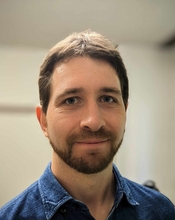
Robert J. Lowe – Featured Speaker @ KOTESOL 2024
![]() Featured Session
Featured Session
Native-Speakerism and (Dis)empowerment: An Autoethnography of Success and Failure in Language Teaching and Learning
Native-speakerism is an ideology in which the models of English and the pedagogical approaches of the West are taken as normative in language education. One well-known result of this ideology is the privileging of so-called English “native speakers,” whose proximity to an idealized nexus of language, nation, and race allows them relatively easy access to language teaching jobs. In the context of Japan, this model of privilege has been problematized by scholars who have argued that “native speaker” teachers may also be marginalized and essentialized as nothing more than representatives of a linguistic and cultural fiction. This autoethnography explores how native-speakerist language policies and practices at universities, such as “English only” in the classroom, simultaneously empowered and disempowered the presenter. While he could gain access to jobs with relative ease, the insistence on English-only pedagogy and a pretense of monolingualism served to inhibit his learning of Japanese – a point that has acted as a barrier to his professional integration. Set in the context of a tertiary education system characterized by tensions between rhetoric of internationalization and essentialized concepts of language use, this presentation will highlight how institutional language policies obstruct multilingual practice and lead to internal contradictions regarding institutional goals.
![]() Invited Second Session
Invited Second Session
Duoethnography in ELT: Research, Reflection, and Practice
Duoethnography is a qualitative research method focused on two researchers contrasting their unique life histories in order to come to a new understanding of a phenomenon. In ELT the method has been used to investigate issues such as language teacher identity, the experiences of native- and non-native-speaker teachers, and the management of professional relationships. In addition to its use as a research method, duoethnography has been effectively adapted as a tool for reflective practice among teachers, and even as a form of project-based language teaching. This workshop will discuss the origins and principles of duoethnography, explore its uses in ELT to date, and give audience members an opportunity to consider and discuss ways in which they may be able to apply the method to their lives as both researchers and teachers.
 Biosketch
Biosketch
Robert J. Lowe, PhD, is an associate professor in the Department of Languages and Culture at Ochanomizu University, Japan. His research focuses on critical qualitative inquiry in English language teaching. He is the coauthor of Teaching English as a Lingua Franca (Delta Publishing, 2018), co-editor of Duoethnography in English Language Leaching (Multilingual Matters, 2020), and author of Uncovering Ideology in English Language Teaching (Springer, 2020). His recent publications include articles in ELT Journal, the Journal of Language, Identity, and Education, and the Journal of Multilingual and Multicultural Development.
Select Sites
Robert J. Lowe: Ochanomizu University.
Robert J. Lowe: ResearchMap.
Robert J. Lowe: ResearchGate.
Robert J. Lowe: Google Scholar.
Books by Robert J. Lowe.
Robert J. Lowe Interview in The English Connection.
![]() Return to Invited Speakers webpage.
Return to Invited Speakers webpage.
![]() Return to International Conference frontpage.
Return to International Conference frontpage.
| Attachment | Size |
|---|---|
| 642.61 KB |


